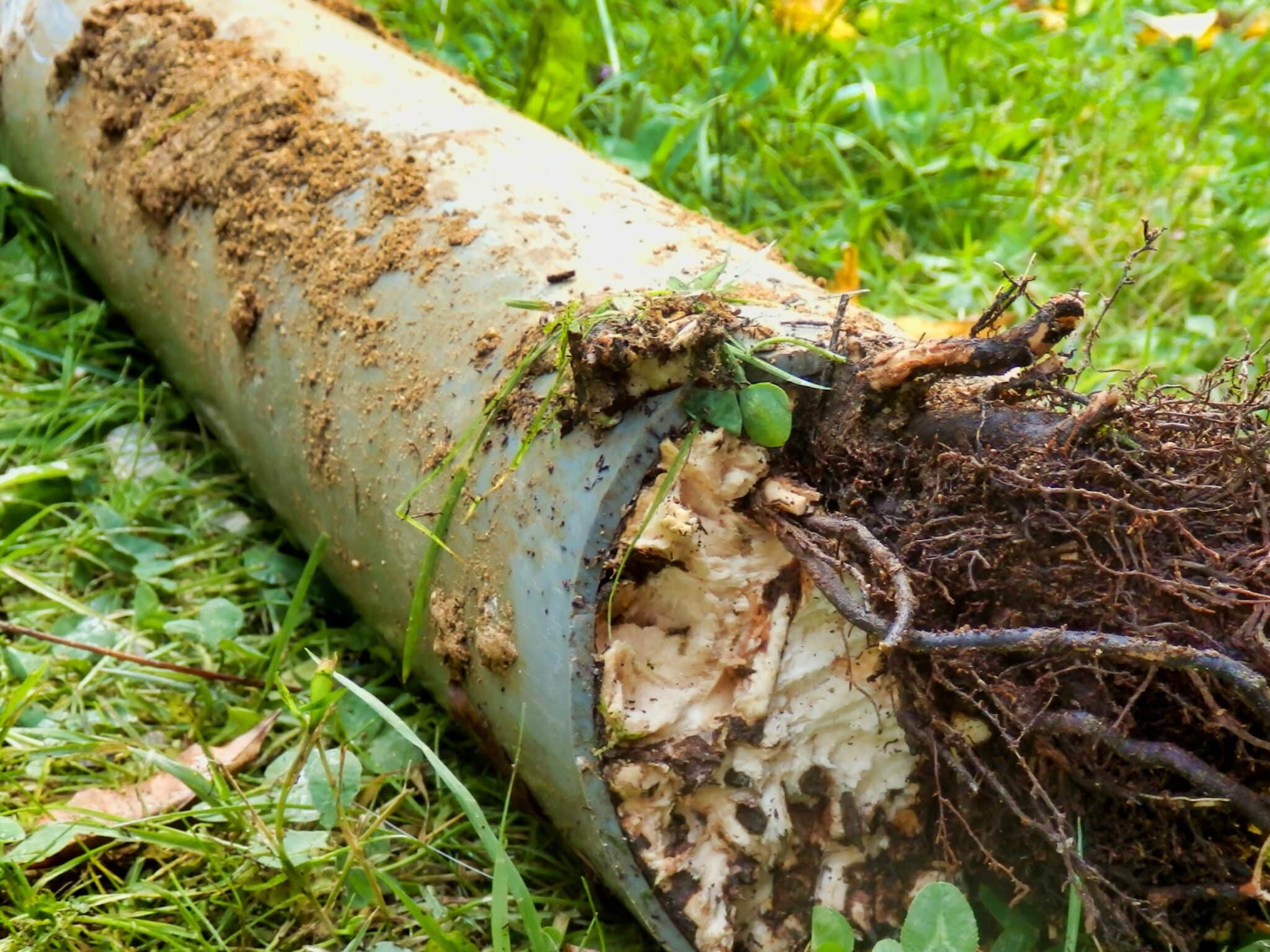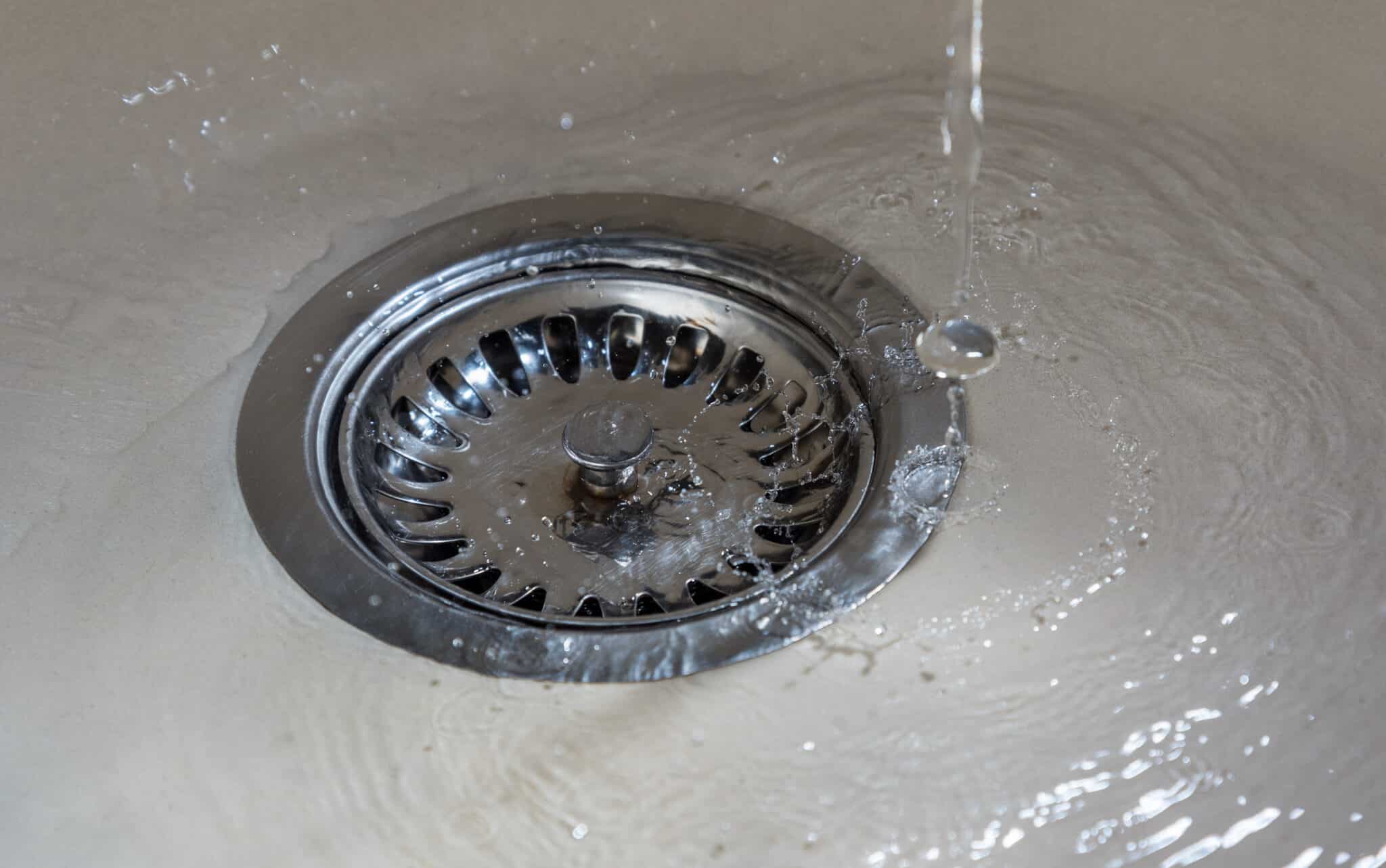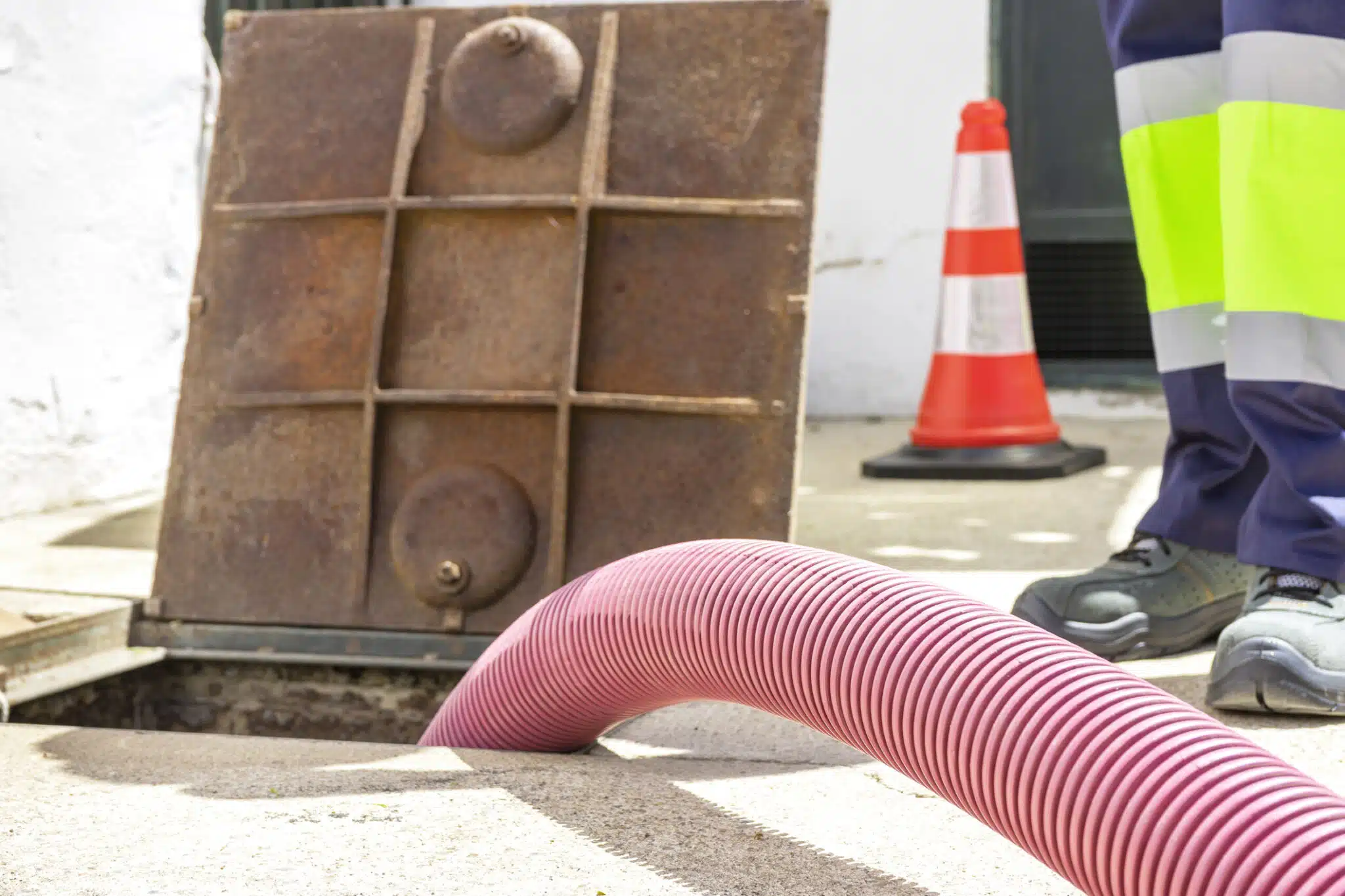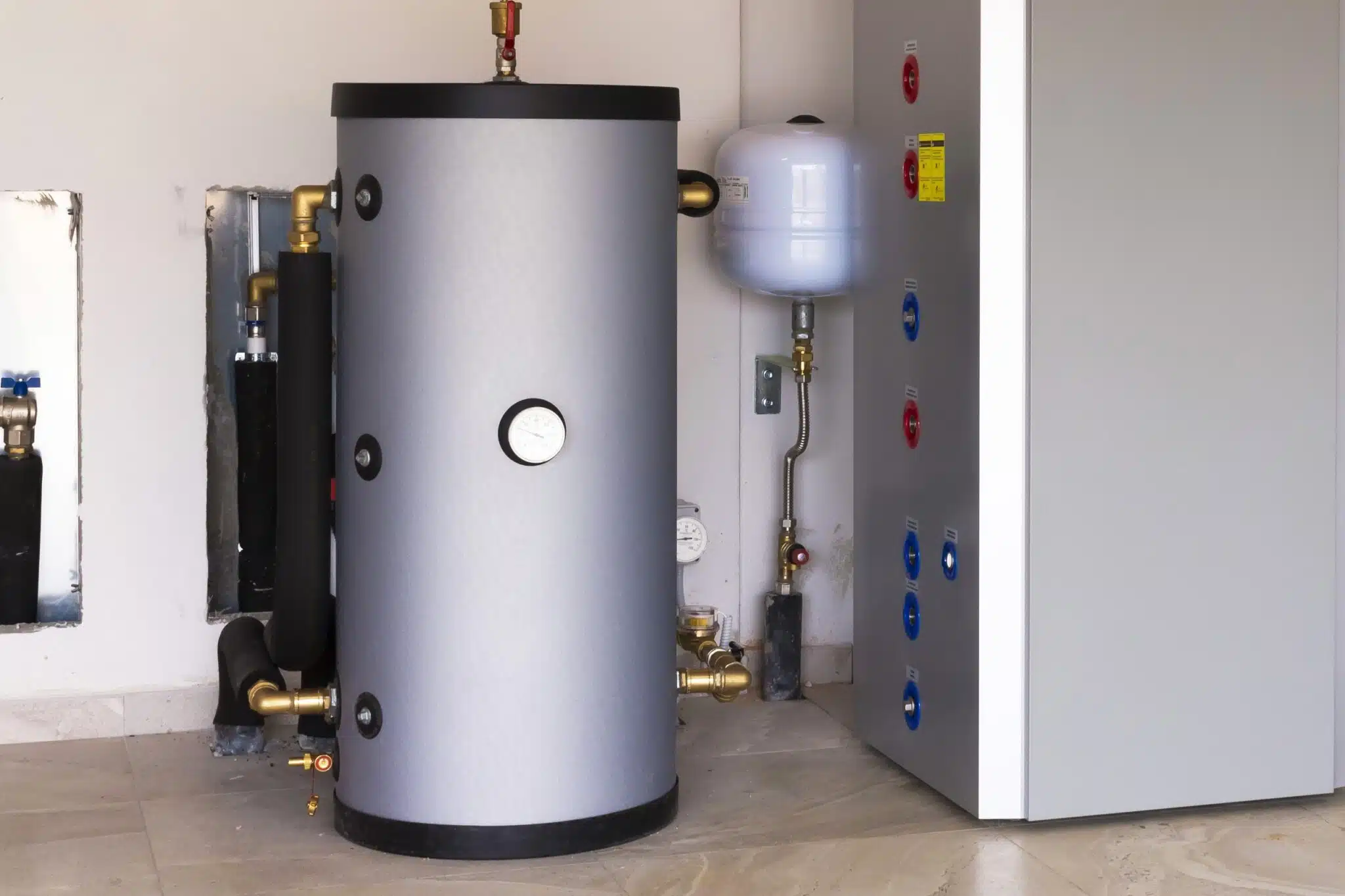Sewer backups are more than just an inconvenience, they are a costly, messy, and dangerous problem for Troy and Macomb Township homeowners. As spring thaw accelerates in March, melting snow and relentless rain flood aging sewer systems, pushing contaminated water back into homes. Sewer backups can ruin basements, destroy belongings, and expose families to serious health risks. Taking proactive steps now is the best way to avoid disaster this spring.
How Melting Snow and Ice Contribute to Sewer Backups
As March temperatures rise in Troy and Macomb Township, melting snow and ice create excess water that saturates the ground. Snow that has accumulated over several months suddenly melts within a few weeks, often overwhelming local drainage systems. This influx of water can easily find its way into the sewer lines, causing sewer backups in homes and businesses. Understanding this process helps explain why spring can be a particularly risky time for homeowners.
When the ground is still frozen beneath the surface, it prevents water from soaking into the soil. Instead of being absorbed, the melting snow and ice create runoff that flows directly into storm drains and sewer pipes. This sudden surge of water puts added pressure on aging sewer infrastructure throughout Troy and Macomb Township. If these systems are already compromised or clogged, the excess water can lead to sewer backups much faster.
In addition to surface runoff, cracks in sewer pipes can allow melted snow to seep inside, increasing the water volume even more. The added pressure can cause blockages or slow the flow of wastewater, leading to backups inside homes. Homeowners may notice slow drains, gurgling toilets, or even sewage coming up through floor drains during these times.
By recognizing the connection between melting snow and sewer backups, homeowners can stay alert to early warning signs. Scheduling regular sewer inspections and maintenance during March can help prevent these issues before they become major problems. Sewer backups may be common during spring thaw, but proactive steps can make a big difference.
Increased Rainfall in March Can Overload Sewer Systems
March brings not only melting snow but also increased rainfall throughout Troy and Macomb Township. This combination of water sources places an incredible strain on local sewer systems already working to manage spring thaw runoff. When heavy rain falls on saturated ground, it accelerates the risk of sewer backups. With nowhere else to go, excess water floods storm drains and sewer lines, often overwhelming their capacity.
Many sewer systems in the area were designed to handle average water flow, not sudden surges during extreme weather events. When rainfall and snowmelt happen at the same time, these systems frequently exceed their limits. As a result, wastewater can back up into homes through drains, toilets, and basement plumbing fixtures. This creates stressful situations for homeowners, along with costly repairs and potential health risks.
Older infrastructure in Troy and Macomb Township can also contribute to this problem. Cracked pipes or aging joints can allow rainwater to seep into sewer lines, compounding the issue. During heavy March rains, homeowners may notice signs of sewer backups like foul odors, slow drainage, or water stains in the basement.
Understanding how increased rainfall impacts local sewer systems is key to preventing backups. Scheduling inspections and maintaining sewer lines can help Troy and Macomb Township residents protect their homes this spring.

Tree Root Growth in Spring Increases Sewer Backup Risks
As spring begins in Troy and Macomb Township, tree roots aggressively search for water, often invading underground sewer pipes. These roots are naturally drawn to the moisture inside sewer lines, especially where cracks or loose joints exist. Once roots penetrate the pipe, they expand quickly, blocking the flow of wastewater and increasing the risk of sewer backups. This problem often worsens in March when spring thaw and rainfall already strain local sewer systems.
Tree root intrusion is one of the most common causes of sewer backups in older neighborhoods. Many homes in Troy and Macomb Township still rely on aging clay or concrete sewer lines, which roots easily penetrate. As roots grow thicker, they trap toilet paper, grease, and other debris, causing clogs that can result in sudden and severe backups. Homeowners may first notice slow drains or foul smells before wastewater backs up into basements or lower-level bathrooms.
Ignoring early warning signs can lead to costly property damage and potential health hazards from contaminated water. Preventive maintenance, including routine sewer line inspections, helps detect root intrusion before it becomes a serious problem. Troy and Macomb Township residents can protect their homes by staying proactive against sewer backups this spring.
Aging Sewer Systems Raise the Risk of Spring Sewer Backups
Many homes in Troy and Macomb Township rely on aging sewer infrastructure that struggles to handle the demands of spring weather. Over time, sewer pipes weaken due to corrosion, shifting soil, and general wear, making them more vulnerable to damage. When spring thaw and rainfall add pressure to these outdated systems, the risk of sewer backups increases significantly. Homes connected to older sewer lines are often the first to experience problems when the system becomes overwhelmed.
Old clay or cast-iron pipes commonly found in these areas are prone to cracks and joint failures. These weaknesses allow groundwater from melting snow and rain to seep into the sewer system, adding extra volume. As more water flows in, these already fragile pipes can collapse or clog, resulting in sewer backups inside homes. Early warning signs include frequent drain clogs, slow drainage, and gurgling sounds coming from toilets or sinks.
Delaying repairs on aging sewer infrastructure only increases the likelihood of costly backups and potential property damage. Homeowners in Troy and Macomb Township should schedule regular sewer inspections, especially in March, to identify vulnerable areas before they fail. Staying proactive with maintenance helps prevent sewer backups and protects the long-term health of your home’s plumbing system.
Improper Waste Disposal Is a Leading Cause of Spring Sewer Backups
Improper waste disposal is one of the leading causes of sewer backups in Troy and Macomb Township, especially during the spring thaw. Many people do not realize that flushing wipes, paper towels, and feminine products can clog sewer lines quickly. These items do not break down in water and often get stuck in older pipes already strained by heavy spring runoff. Once a blockage forms, it is only a matter of time before sewer backups flood basements and lower-level bathrooms.
Fats, oils, and grease are just as damaging. Pouring them down the drain may seem harmless, but they cool, harden, and stick to pipe walls. As these deposits build up, they create narrow passageways where other debris gets caught, forming massive blockages. In March, when sewer systems are already overwhelmed by melting snow and rain, these blockages are a recipe for disaster, often resulting in costly sewer backups.
The damage from a sewer backup is not just inconvenient, it is hazardous. Contaminated water can destroy personal belongings, damage structures, and expose your family to harmful bacteria. By disposing of waste responsibly, homeowners in Troy and Macomb Township can dramatically reduce the risk of spring sewer backups and protect their homes.
Sewer Backups Pose Serious Health Hazards for Homeowners
When sewer backups occur in Troy and Macomb Township homes, they do more than create a mess, they pose serious health risks. Sewage contains bacteria, viruses, and other harmful pathogens that can contaminate your living space. Direct contact with this contaminated water can cause illnesses such as gastroenteritis, skin infections, and respiratory problems. During the spring thaw, when backups are more common, the threat to health and safety increases dramatically.
Sewer backups can also release toxic gases like methane and hydrogen sulfide into your home. Inhalation of these gases can lead to headaches, dizziness, and even long-term health issues with prolonged exposure. Additionally, the high moisture levels caused by backups create an ideal environment for mold growth, further compromising indoor air quality. Spring moisture combined with sewage contamination can make homes unsafe very quickly.
Prompt cleanup after sewer backups is essential, but prevention is even more important. Homeowners in Troy and Macomb Township should take proactive steps in March to avoid exposure to these hazardous conditions. By preventing sewer backups, you protect both your property and your family’s health.

Recognizing Early Warning Signs Can Prevent Sewer Backups
Sewer backups are a major concern during the spring thaw in Troy and Macomb Township. Recognizing the early warning signs is essential to preventing costly damage and health risks. Below are five critical signs that may indicate sewer backups are developing in your home.
-
Slow-Draining Fixtures
When water drains slowly from sinks, tubs, or showers, it often signals a partial blockage in your home’s main sewer line. Ignoring this early warning can lead to complete sewer backups.
-
Gurgling Sounds from Drains
If you hear unusual gurgling noises from toilets or drains, it may indicate trapped air in your plumbing system. This sound usually points to developing sewer line blockages and an increased risk of sewer backups.
-
Foul Odors Near Drains
The smell of sewage around drains or in your basement suggests wastewater is not flowing properly. These odors typically indicate a problem in your sewer system and an impending sewer backup.
-
Water Backing Up into Drains
If water backs up into basement drains, toilets, or tubs, it is a clear sign your sewer line is overwhelmed. This situation often precedes severe sewer backups.
-
Multiple Simultaneous Clogs
When several drains clog at once, the issue is typically in your main sewer line. Immediate action can prevent sewer backups and protect your property.
Schedule an inspection with Z PLUMBERZ today to safeguard your home this spring.
Regular Sewer Line Inspections Help Prevent Spring Sewer Backups
One of the most effective ways to prevent sewer backups during spring in Troy and Macomb Township is scheduling regular sewer line inspections. Professional inspections can identify potential issues like tree root intrusion, pipe corrosion, or early blockages before they become major problems. March is an ideal time for homeowners to arrange these inspections, as spring thaw and rainfall place added stress on sewer systems. By catching issues early, you can avoid costly damage and protect your home.
During an inspection, plumbing professionals use advanced equipment such as video cameras to thoroughly examine sewer lines. These tools allow them to spot cracks, buildup, and other signs of trouble deep within the system. If any issues are found, they can be addressed promptly, preventing sewer backups from occurring when water flow increases in spring. Inspections offer peace of mind during a season when sewer systems are most vulnerable.
Homeowners who invest in routine sewer maintenance often avoid emergency repairs and unexpected backups. Regular check-ups keep your plumbing system running smoothly, reducing the risk of damage from flooding or contamination. Troy and Macomb Township residents can benefit greatly from scheduling sewer inspections before spring challenges arise.
Do not wait for sewer backups to disrupt your home. Take action now by arranging a professional sewer line inspection this spring.
Installing Backwater Valves Can Prevent Spring Sewer Backups
Homeowners in Troy and Macomb Township can take a big step toward preventing sewer backups by installing backwater valves. These simple but effective devices stop wastewater from flowing backward into your home during periods of heavy rainfall or rapid snowmelt. Spring thaw and increased precipitation put sewer systems under extreme pressure, making backwater valves a valuable line of defense. By preventing reverse flow, they help keep basements and lower-level spaces safe from sewage contamination.
A backwater valve works by allowing water and waste to flow out of your home while automatically closing if water tries to flow back in. During March, when sewer systems in Troy and Macomb Township are often overwhelmed, these valves offer critical protection against unexpected backups. Homes without this safeguard are much more likely to experience flooding when sewer lines reach capacity.
Installing a backwater valve is a proactive investment that can prevent extensive damage to your home and property. It is a practical solution for homeowners who want to protect their property during spring’s unpredictable weather. Regular maintenance of the valve ensures it functions correctly when it is needed most.
For homeowners in Troy and Macomb Township, installing a backwater valve is one of the smartest ways to prevent spring sewer backups.
Proper Yard Drainage Reduces the Risk of Spring Sewer Backups
Poor yard drainage can significantly increase the risk of sewer backups, especially during the spring thaw in Troy and Macomb Township. When melting snow and spring rains saturate your yard, excess water can accumulate around your home’s foundation. If water is not directed away from the property, it can seep into sewer lines through cracks or overwhelmed pipes, increasing the chance of backups. Proper drainage helps manage water flow and protects your home’s plumbing system.
Grading your yard to slope away from your home is a key step in preventing water buildup. Gutters and downspouts should also be checked to ensure they direct rainwater well away from the foundation. Without these measures, spring runoff can quickly overwhelm sewer systems, making backups more likely. Homeowners often underestimate how much proper yard drainage impacts their risk of sewer backups.
French drains, swales, or rain gardens can also help manage excess water by redirecting it from problem areas. These solutions are particularly useful during March when heavy rains and melting snow combine to saturate the soil. Addressing drainage issues before spring reduces stress on your sewer system and lowers the chance of a backup.
By improving yard drainage, Troy and Macomb Township residents can take an important step in preventing spring sewer backups.
Protect Your Home from Spring Sewer Backups with Proactive Solutions
Spring brings warmer weather, but it also increases the risk of sewer backups for homeowners in Troy and Macomb Township. Melting snow and heavy rainfall put added stress on sewer systems, often causing backups that lead to property damage and health hazards. The best way to protect your home this season is through proactive solutions and preventive maintenance.
Z PLUMBERZ offers expert services designed to prevent sewer backups before they start. Our experienced team provides thorough sewer inspections, identifies potential issues, and installs reliable backwater valves. These proactive measures help protect your home during the spring thaw, when sewer systems are most vulnerable.
Homeowners who schedule regular maintenance can avoid costly sewer backups and enjoy peace of mind throughout the season. Z PLUMBERZ proudly serves Troy and Macomb Township with dependable, professional plumbing services. We work quickly and efficiently to keep your sewer system running smoothly.
Do not wait until sewer backups disrupt your life this spring. Contact Z PLUMBERZ today to schedule your inspection and protect your home with proactive solutions that work.
Frequently Asked Questions About Spring Sewer Backups
-
What causes sewer backups during the spring thaw?
Melting snow and heavy rainfall overwhelm sewer systems in Troy and Macomb Township. As ground saturation increases, excess water flows into sewer lines. When sewer capacity is exceeded, wastewater backs up into homes, causing sewer backups during March and April.
-
How do tree roots contribute to sewer backups in spring?
Tree roots grow aggressively in spring, seeking water and nutrients. They enter sewer pipes through small cracks or loose joints. Once inside, roots block the flow of wastewater, causing sewer backups. This problem is especially common in areas with aging sewer systems.
-
Why is March a high-risk month for sewer backups?
March brings warmer temperatures, causing rapid snowmelt combined with seasonal rainfall. Sewer systems in Troy and Macomb Township struggle to manage this sudden water influx. Without regular maintenance, sewer backups are more likely during this time.
-
How can I prevent sewer backups this spring?
Schedule professional sewer inspections, install backwater valves, and improve yard drainage. Avoid flushing wipes or grease. Troy and Macomb Township homeowners who act early reduce their risk of sewer backups.
-
Are sewer backups dangerous to my health?
Yes, sewer backups expose your home to harmful bacteria, viruses, and toxins. Immediate professional cleanup is essential to protect your family’s health and safety.












